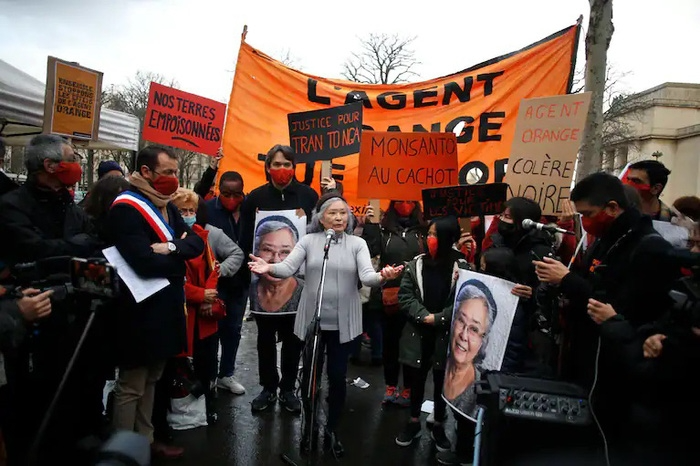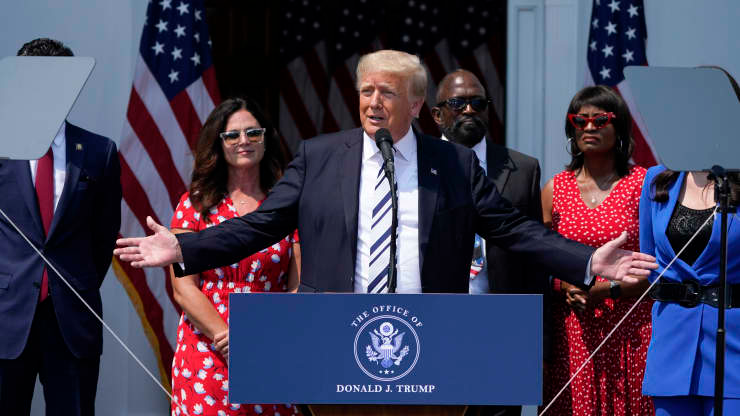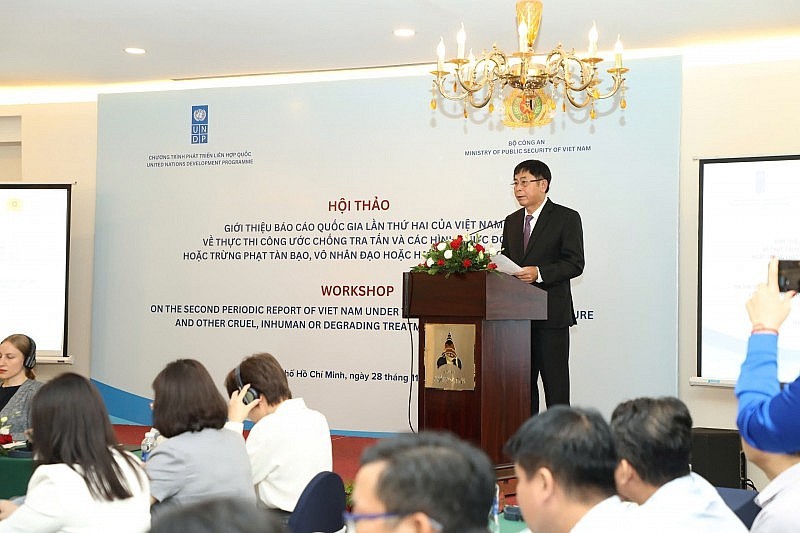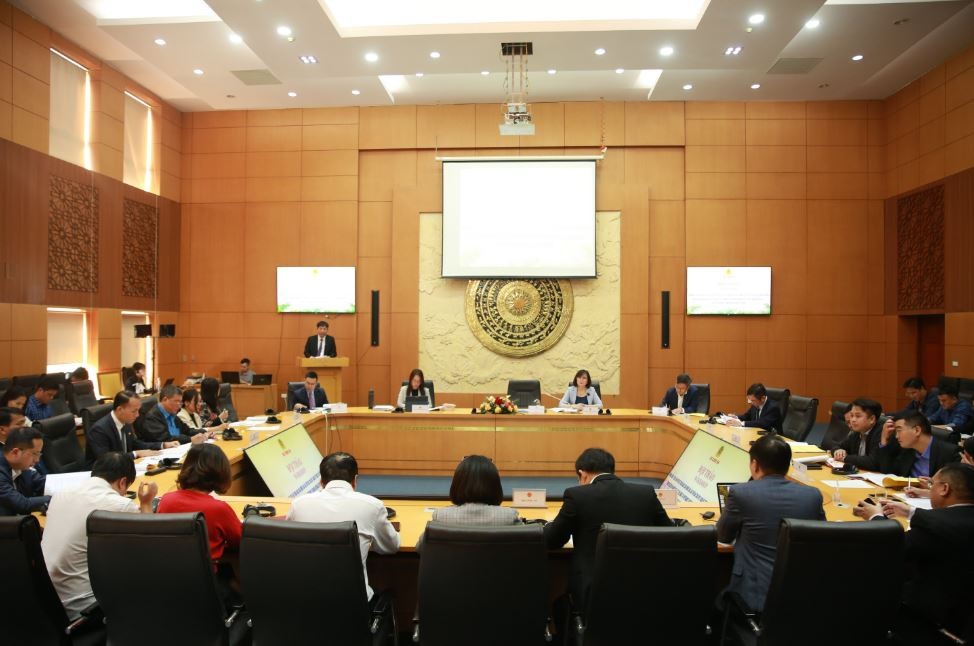Convention Against Torture Implemented in Vietnam
Since joining the Convention against torture on Nov. 28 2014, the Government has directed ministries, branches and localities to simultaneously implement the Convention nationwide, developing schemes to disseminate the Convention and laws on anti-torture for cadres, civil servants, and residents.
The Ministry of Public Security of Vietnam has also piloted the use of audio and videos in criminal proceedings at 45 establishments. Audio and video recording data are considered part of the criminal case file. Relevant officials have been given lectures on public service ethics and professional ethics. Violators, especially those involving torture, face hefty punishments.
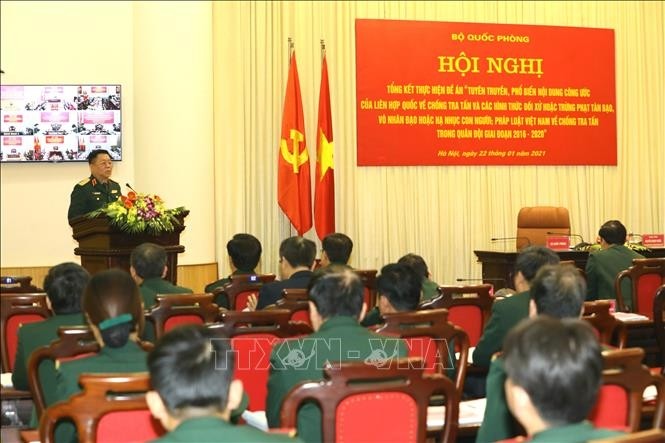 |
| Photo: VNA |
Vietnam has also cooperated with foreign partners to exchange information and experiences on implementing the convention and using equipment effectively. Vietnamese officials also attended international conferences and seminars related to anti-torture, which strengthening the capacity of Vietnamese cadres, especially the police force in charge of the anti-torture convention.
The Ministry of Defense had launched the project “"Propaganda and dissemination of the UN Conventions on anti-torture and other cruel, inhuman or degrading treatment or punishment, Vietnam law on combating torture in the Army for the 2016 – 2020 period."
At the review conference in January, the ministry said Vietnam had attained the basic targets of the project, including comprehensively implementing the convention, and raising awareness about the meaning, role and content of the convention.
Many localities across the country have also launched projects to disseminate anti-torture messages to the community. Bac Lieu, Kon Tum, Lang Son are among the latest provinces to carry out the campaign.
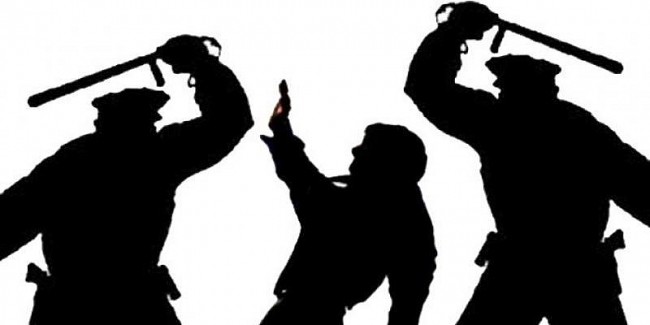 |
| Illustrative photo: Patroli Post |
According to the Plan, popular contents include Human rights, basic rights and obligations of citizens according to the provisions of the Constitution of the Socialist Republic of Vietnam (Constitution of 2013), especially the rights and obligations directly related to the prevention and combat of torture; the rights of persons who are arrested, held in custody or temporarily detained in accordance with the provisions of the Criminal Procedure Code 2015; crimes specified in the 2015 Penal Code (amended and supplemented in 2017) related to acts of torture; legal regulations on professional ethics of cadres, civil servants, public employees and employees to ensure respect for human rights when performing official duties related to torture prevention and control.
Completing the legal system
Bui Trung Bun, of the Faculty of Investigative Security, Academy of People's Security, said Vietnam's law had relatively basic and complete mechanisms to ensure the right not to be tortured.
However, he said there are still some issues that need to be further addressed in Vietnam’s anti-torture effort. The solutions require a more complete legal framework for preventing and combating torture.
First, it is necessary to clearly define the definition of torture in the Penal Code and criminalize the act of torture.
Second, there should be research to improve existing legal procedures to ensure that acts of torture are investigated and prosecuted quickly and seriously.
Third, there should be a roadmap to develop a Law on effective prevention of anti-torture. Several countries have had their own laws on anti-torture, supporting victims of torture such as the US, South Africa, Philippines, Uganda. The use of separate anti-torture laws will help better protect human rights and citizen rights in Vietnam.
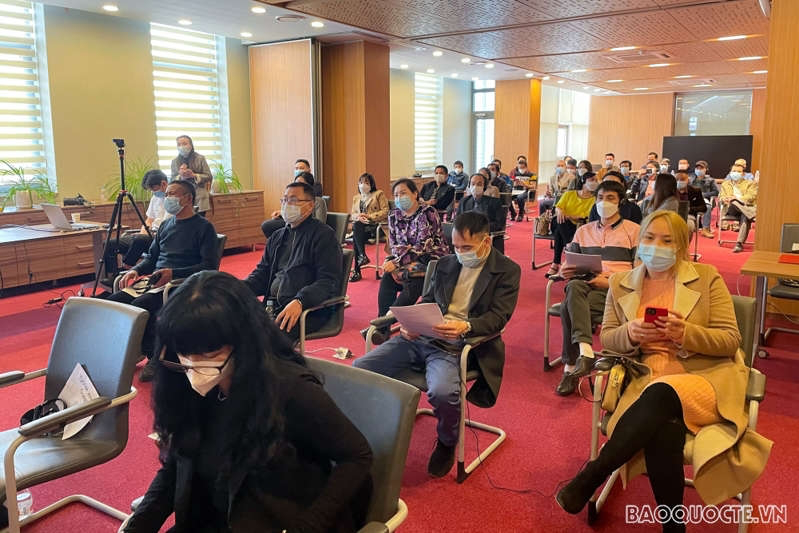 | Disseminate local laws to Vietnamese community in Mongolia On May 27, a conference on introducing and disseminating Mongolian law to Vietnamese people in this country was held. |
 | High tech companies - India tension can lead to a possible stand-off The biggest high-techs are in intension with India over new social media rules that will invade privacy of the users and usher in mass surveillance, ... |
 | WhatsApp sues India government for "severely undermine" user's privacy On Wednesday, WhasApp has sued India government, which would lead to "mass surveillance" by violating the privacy of the users. |
Recommended
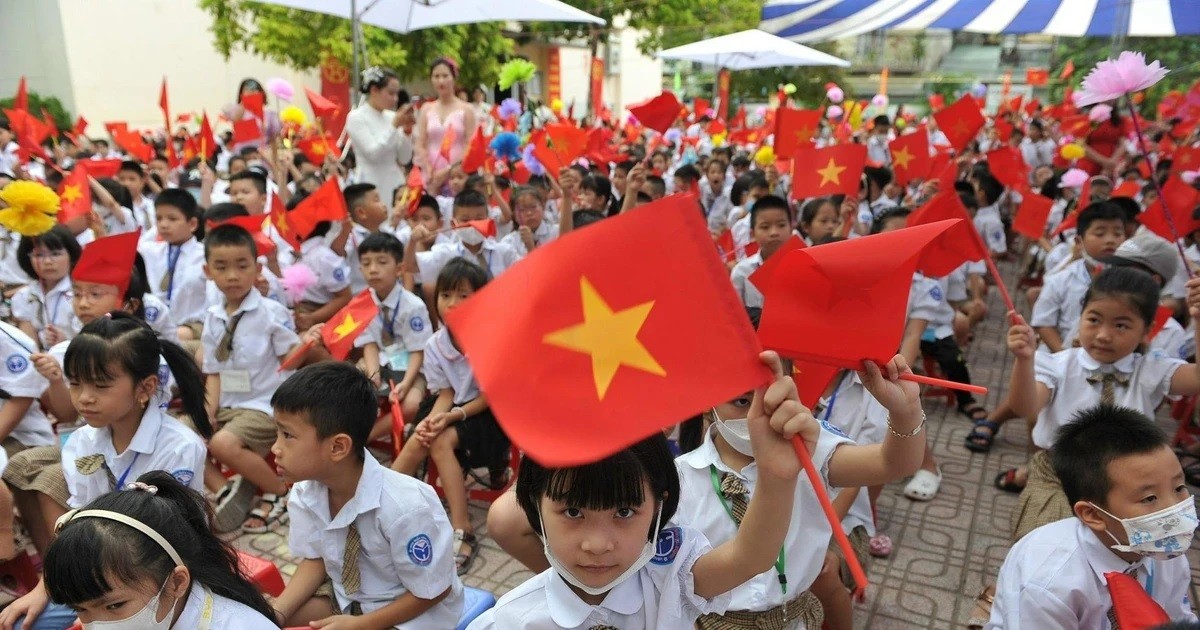 Viet's Home
Viet's Home
Vietnam's Human Development Index Remains High
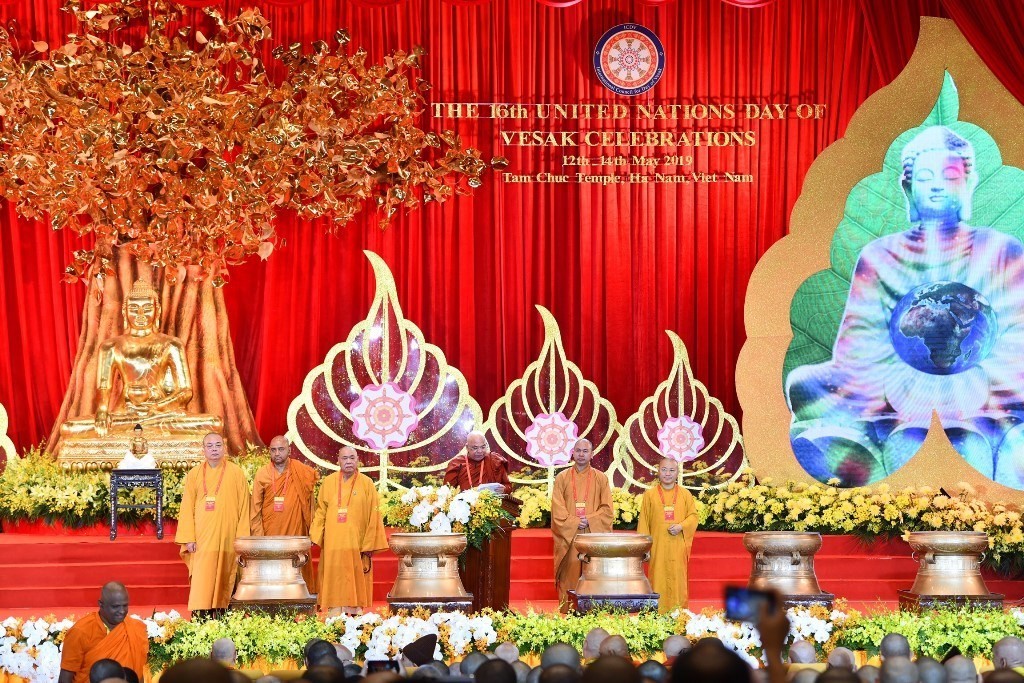 Viet's Home
Viet's Home
Vietnam’s Mark on UN Day of Vesak Celebrations
 Viet's Home
Viet's Home
Art Program Spreads Message of Peace Worldwide
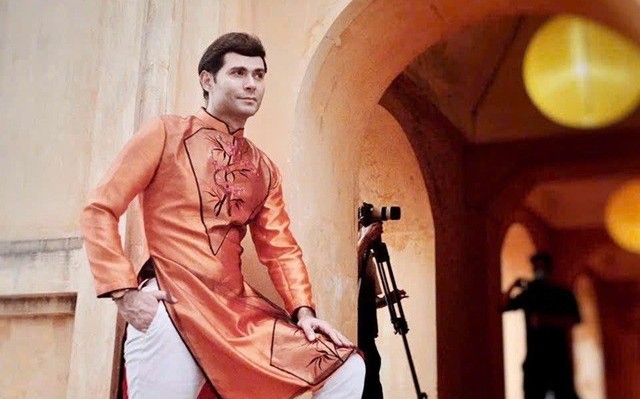 Expats in Vietnam
Expats in Vietnam
Look Forward to New Developments in Vietnam - US Relations
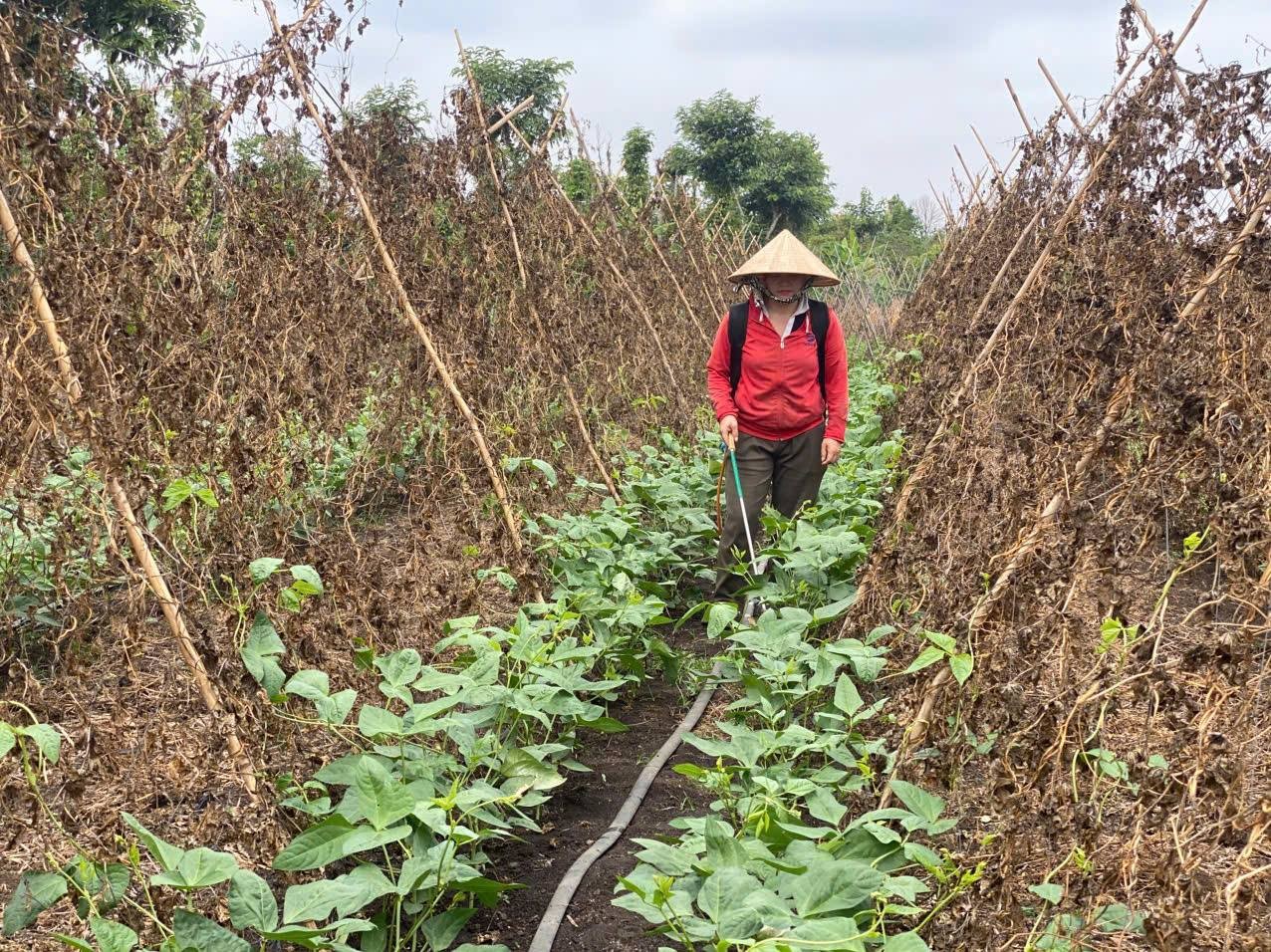 Viet's Home
Viet's Home
She Feeds the World: 8,000 Individuals Adopt More Sustainable Agricultural Practices
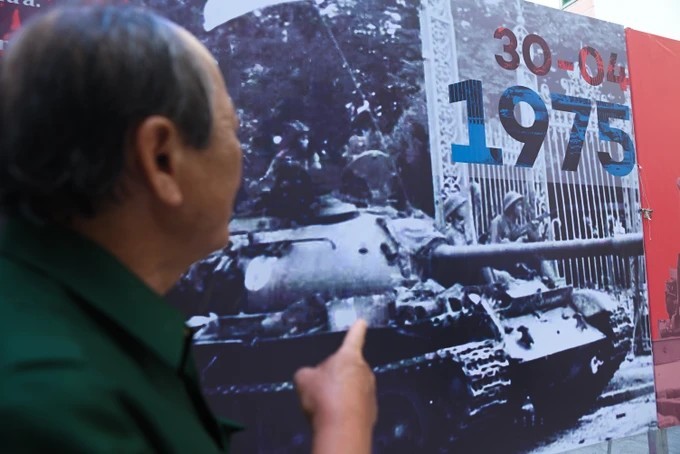 Viet's Home
Viet's Home
Over 200 Valuable Documents Displayed at 'Mountains and Rivers Connected One Strip' Exhibition
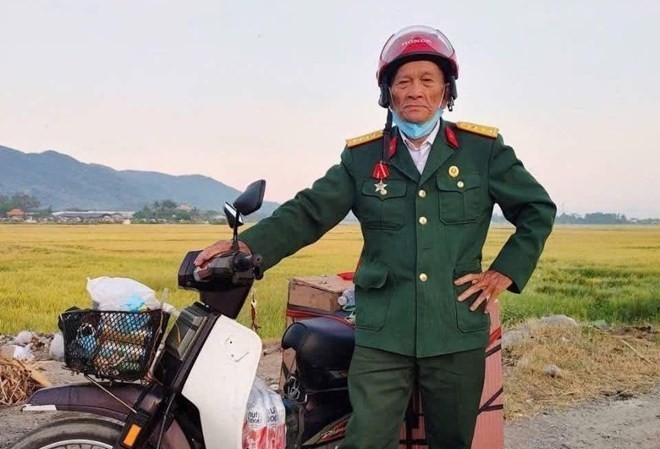 Viet's Home
Viet's Home
Latin American News Agency Prensa Latina Shares Story of Vietnamese Veteran’s 1,200km Journey Back to Former Battlefield
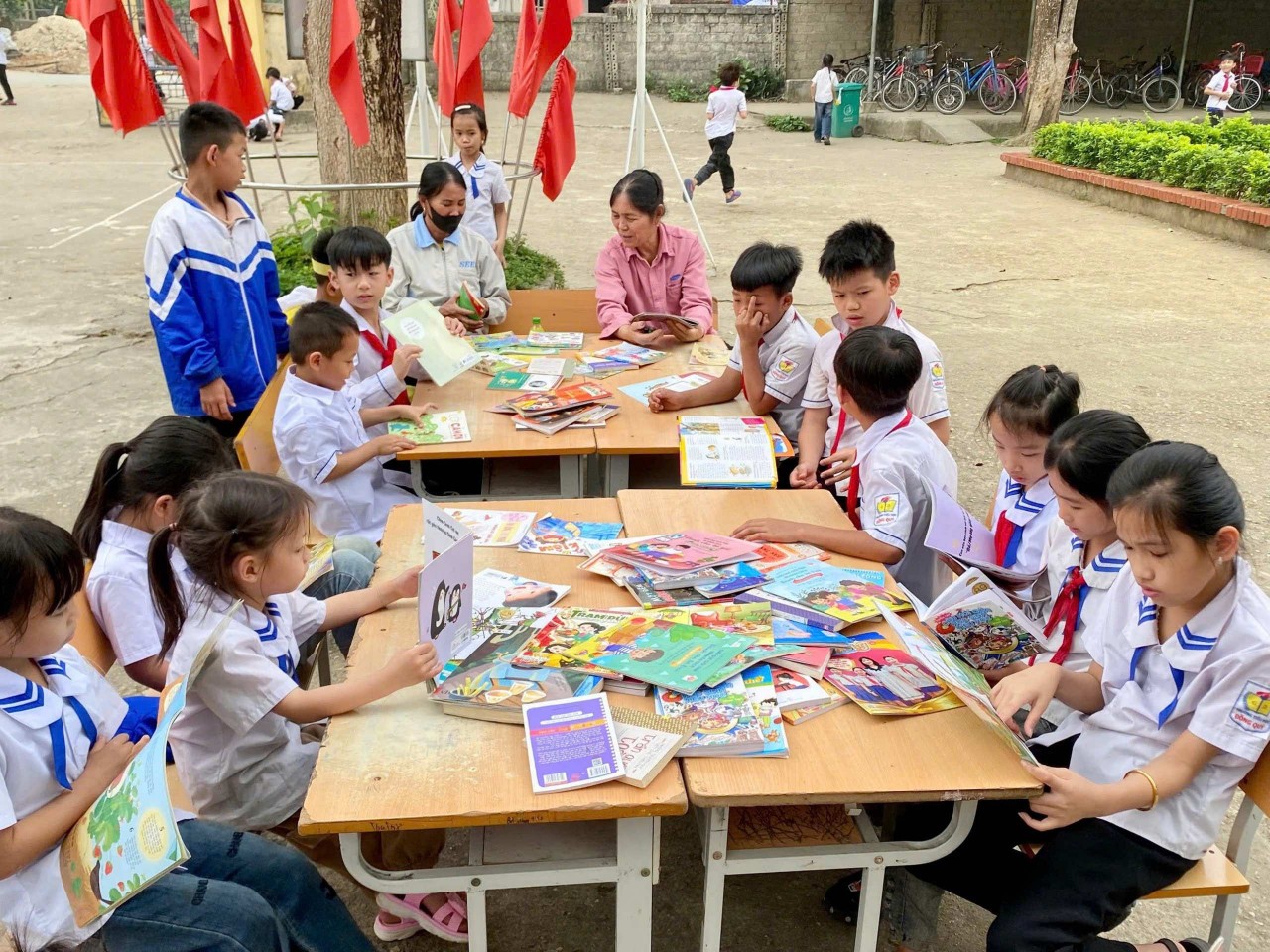 Viet's Home
Viet's Home

